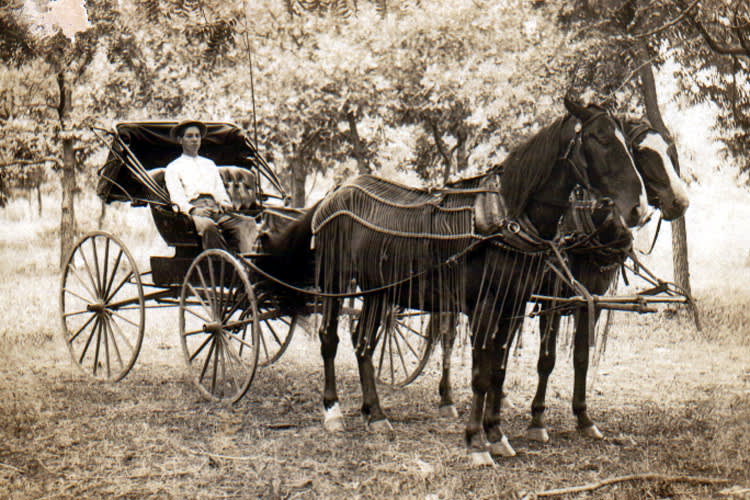I normally ignore uninformed comments on public stock websites, but decided to reply to this one:
2019: "One of the main reasons it won't be successful is most riders will not get in one. I'm a Uber driver and I ask my riders if they would get in one and most of them said they will not get in a driverless car. And another reason it will fail is that having driverless cars is a bigger expense for Uber or Lyft. Right now the driver is responsible for the cars and the maintenance on the cars. But with driverless cars that expense transfers to Uber, and in turn will make the rider rates go up and they will lose a lot of business to traditional taxi's." (from MarketWatch)
My reply:
1905: "One of the main reasons horseless carriages will not be successful is most horse and buggy riders will not get in one. I'm a horse and buggy driver and I ask my riders if they would get in one and most of them say they will not get in a horseless carriage". Really?
From Horse and buggy - Wikipedia : "By the early 1910s, the number of automobiles had surpassed the number of buggies, but their use continued well into the 1920s in out of the way places".
My prediction: by the early 2030s, the number of fully autonomous electric vehicles will surpass the number of human-driven internal combustion engine vehicles, but their use will continue well into the 2040s in out of the way places".

Horse and buggy - Wikipedia
EN.WIKIPEDIA.ORG
"
2019: "One of the main reasons it won't be successful is most riders will not get in one. I'm a Uber driver and I ask my riders if they would get in one and most of them said they will not get in a driverless car. And another reason it will fail is that having driverless cars is a bigger expense for Uber or Lyft. Right now the driver is responsible for the cars and the maintenance on the cars. But with driverless cars that expense transfers to Uber, and in turn will make the rider rates go up and they will lose a lot of business to traditional taxi's." (from MarketWatch)
My reply:
1905: "One of the main reasons horseless carriages will not be successful is most horse and buggy riders will not get in one. I'm a horse and buggy driver and I ask my riders if they would get in one and most of them say they will not get in a horseless carriage". Really?
From Horse and buggy - Wikipedia : "By the early 1910s, the number of automobiles had surpassed the number of buggies, but their use continued well into the 1920s in out of the way places".
My prediction: by the early 2030s, the number of fully autonomous electric vehicles will surpass the number of human-driven internal combustion engine vehicles, but their use will continue well into the 2040s in out of the way places".

Horse and buggy - Wikipedia
EN.WIKIPEDIA.ORG
"


